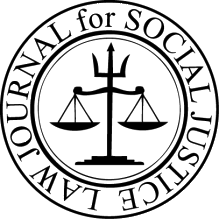By Kyle Bycroft. Arizona has seen an unprecedented rise in its unhoused population in the last several years, and senior citizens bear some of the greatest hardships of life on the street. Unhoused seniors often face unique and long-lasting health impacts due to factors like exposure to illness, addiction, unchecked mental health problems, and extreme temperatures—high in the summer and low in the winter. Now, states are using creative means to combat the crisis by diverting federal Medicaid funds to provide housing for their most vulnerable residents. But doctors and housing experts say temporary solutions are not enough to create lasting change.
Our people are not for sale: How Medicaid program fraud targeted tribal members
By Shandiin Herrera. Health and safety are essential to a thriving community. As such, Native American leaders are committed to ensuring that quality services are provided to all tribal members. But a major fraud scheme uncovered by Arizona agencies and tribal governments in 2023 robbed the state of millions of dollars in state health and safety funding, taking advantage of a loophole in the Arizona Health Care Cost Containment System, or AHCCCS. The perpetrators defrauded taxpayers, but even more importantly they put the health and safety of vulnerable tribal members at risk and contributed to the delegitimization of essential state programs on which many people rely.
Our most vulnerable behind bars: The crisis of the elderly in the nation’s prisons
By Kyle Bycroft. The United States is facing a rapidly-increasing elderly prison population, posing new and challenging costs for governments and inmates. From a lack of accommodations for aging prisoners to a dearth of adequate health care within federal and state prison systems, the problems are vast—and require new, creative solutions to achieve better outcomes.
The Interior’s trust responsibility requires the Bureau of Indian Affairs to deploy the Indian canons of construction in applying Chevron deference
By Morgan Oakes. Courts and federal agencies use a variety of tools to interpret statutes, but Chevron deference is the doctrine that best favors tribal sovereignty. This analysis requires courts to defer to a federal agency’s reading of an ambiguous statute so long as that reading is “reasonable.” In cases about federal policy for Native American affairs, this typically means upholding a statutory construction that favors federally recognized tribes.
Are school bonds still constitutional in Arizona?
By Felix Raimondo. Arizona law may violate the state constitution by failing to provide an adequate funding structure for the state’s public schools. School districts—and courts—have begun to notice. Will school funding bonds eventually be found unconstitutional in Arizona?
